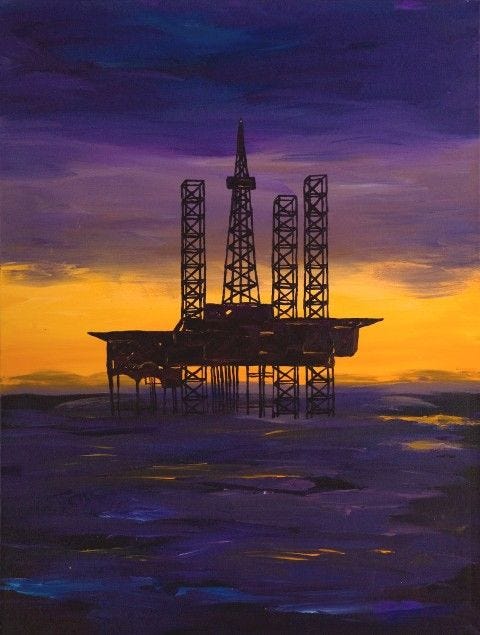FUEL TO THE WORLD’S ECONOMY

Around the start of the year, the world saw sudden fluctuation in the market prices of oil, the biggest one day crash in oil prices since the 1991 gulf war, Oil prices fell dramatically up to only 20$ per barrel (the price of oil went negative). The market was flooded with crude oil and in tandem with the lower demand, oil prices plunged down to a negative. This sudden drop in prices was caused by an economic war that started in March of 2020, by Saudi Arabia as a response towards Russia’s reluctance to comply with the proposed plan of cut oil production amidst the spread of the COVID-19 virus.
Around the start of the year, the world saw sudden fluctuation in the market prices of oil, the biggest one day crash in oil prices since the 1991 gulf war, Oil prices fell dramatically up to only 20$ per barrel. The market was flooded with crude oil and in tandem with the lower demand, Oil prices fell dramatically up to only 20$ per barrel plunging down to a negative. This sudden drop in prices was caused by an economic war that started in March of 2020, by Saudi Arabia as a response towards Russia’s reluctance to comply with the proposed plan of cut oil production amidst the spread of the COVID-19 virus.
The reasoning behind the plan in cutting oil productions was because of the spread of the COVID-19 that had put factories and the transportation industry to grind to a halt, thus the demand for oil drops. However, this plan to cut down production to accommodate the current situation was refused by Russia, thus putting an end to the OPEC+ relations with Moscow.
Russia’s pattern of behavior could indicate a security dilemma, remembering how the United States’ shale oil has been the wild-card in the energy sector. In 2018, US oil production went beyond Russia’s and Saudi Arabia, US shale oil market share increased to 15% whereas Russia’s and Saudi remain at 12% and 13%. US’ shale oil production keeps on increasing, therefore providing instability of the world’s global oil price. OPEC started lobbying non-OPEC countries (such as Russia) to form an OPEC+ alliance with a strategy on keeping the oil prices stable by cutting oil production as a response to US’ massive oil production. This strategy may be the safe-havens for oil-producing countries, even though it cost OPEC around trillions of dollars. As tensions grew between US and OPEC+, Russia got triggered by US sanctions to Rosfest, Russian-owned brokerage firm.
Russia’s behavior in refusing to cut off oil production deal may vary, many critics have said that it’s an act of retaliation from Russia to their sterling rival, United States of America. Aiming US’ power as a threat, Russia started balancing their power in the international system configuration by showing off their teeth in producing massive oil. As Russia announced their refusal, oil prices went down to 10%, hence multiple oil producers in North America started to cut the drilling of new wells. US oil production was forced to decline, in order to preserve the global oil prices. Or on the contrary, Russian officials argued this refusal was only because it was too early for cuts without really understanding the full impact this pandemic has on oil prices.
The blame suddenly circulates, not only in Russia, but it also evolves into the roots of OPEC+, as the failure of cooperation and lack of compliance between states. Such Saudi started to initiate the price war by boosting its oil production and handing out discounts to rival competitors as a response to Russia’s refusal. Members started prioritizing their national interest without considering global oil prices, they’re beginning to perceive the international anarchy, the importance of sovereign states above global cooperation. The reasoning behind states’ pattern of behavior is often blurry, but this phenomenon could be justified from Realist paradigm.
The price war rendered a flood of crude oil. As a commodity to sustain the world’s economy, states needed a fast solution to this crisis. /Although the motives behind the ‘price war’ could be justified by realism theory, the solution needs a neo-liberal one.
Global governance could be obtained if the states saw a greater good in oil prices, with cooperation between states, maintained by OPEC, the oil prices could stabilize. After the desperate outputs of oil prices, Russia finally agreed to talk their way to the table again by agreeing on the deal to cut oil production until July. OPEC+ also demanded countries like Nigeria and Iran which exceeded production quotas in May and June, to compensate with extra cuts in July to September.
From Moscow’s massive production to Riyadh’s retaliation, the world has seen how those two oil-producing countries affected the global economy. But with absolute gain and cooperation, all states are willing to comply in overcoming international anarchy and preserve international stability of oil prices.
